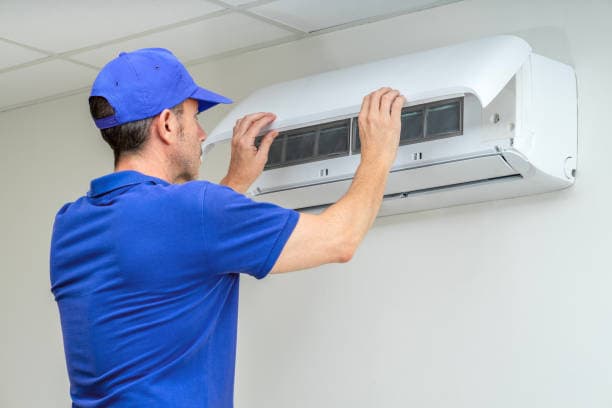
Air conditioning systems are essential for comfort, especially during the warmer months. Whether it’s a residential or commercial unit, any disruption in performance can lead to discomfort and higher costs. Identifying common air conditioner problems early can save time and money in the long run. This article explores the most frequent issues and how to prevent them from turning into expensive repairs.
Clogged Air Filters
A clogged or dirty air filter is one of the most common causes of reduced air conditioner performance. Air filters trap dust, debris, and other airborne particles to ensure clean airflow. Over time, these filters become saturated, restricting airflow and forcing the unit to work harder. This leads to reduced cooling efficiency, increased energy consumption, and potential strain on internal components.
How to avoid it:
Check your air conditioning filters once a month during peak usage seasons. Replace disposable filters or clean reusable ones regularly. This simple maintenance task helps your AC run more efficiently and prolongs its lifespan.
Refrigerant Leaks
If the refrigerant level drops due to a leak, the system can no longer maintain the desired temperature, and cooling efficiency drops dramatically. You may notice warm air blowing from the vents or hear a hissing sound near the AC unit. Left unaddressed, refrigerant leaks can damage the compressor, which is an expensive part to replace.
How to avoid it:
Schedule annual AC inspections with a certified technician to check for any signs of refrigerant leakage. Only a professional should handle refrigerant repairs, requiring specialized tools and proper handling under environmental regulations.
Thermostat Issues
A malfunctioning thermostat can make your air conditioner behave unpredictably. It might cycle on and off too frequently, not turn on, or fail to maintain your set temperature. Older manual thermostats are more prone to calibration problems, while digital or smart thermostats may suffer from software issues or connectivity problems.
How to avoid it:
Upgrade to a programmable or smart thermostat for better control and efficiency. Always check the batteries or power source if your thermostat is acting up. During seasonal maintenance, ask your HVAC technician to calibrate your thermostat and verify it’s communicating correctly with your air conditioning system.
Electrical Failures
Air conditioners rely on a complex electrical system that includes wiring, capacitors, contactors, and circuit boards. Electrical problems in an air conditioning system can result from aging components, sudden voltage spikes, or physical damage such as chewed wires. These issues may prevent the unit from powering on, cause the compressor to fail, or lead to random system outages. These issues are frustrating and dangerous if they lead to overheating or fire hazards.
How to avoid it:
Have a licensed HVAC technician inspect your electrical components annually. They can check for damaged wires, replace worn-out capacitors, and secure all electrical connections. Handling electrical components should be left to qualified technicians, as improper repairs can lead to safety hazards or further system damage.
Frozen Evaporator Coils
The evaporator coils extract heat from the air inside your home, allowing the system to circulate cooler air throughout the space. When airflow is restricted or the refrigerant level is too low, the coils can freeze over, preventing them from working correctly. When this happens, your AC may blow warm air or stop working.
How to avoid it:
Keep filters clean, ensure vents are not blocked, and inspect the system for airflow issues. Also, make sure refrigerant levels are adequately maintained. If your unit has frozen coils, shut it off immediately and call a professional to avoid damaging the compressor.
Drainage Problems
Your air conditioning unit also removes humidity from the air, draining through a condensation line. If this line becomes clogged with algae, mould, or debris, it can lead to water backing up into the system or your home. You might see water around the unit, hear gurgling noises, or smell mouldy odours from the vents.
How to avoid it:
Flush the condensate line with vinegar or a cleaning solution every few months, or have a technician do it during routine maintenance. Make sure the unit is levelled adequately so water can flow out easily. Addressing drainage issues early prevents water damage and mould growth.
Avoiding these problems requires preventive maintenance and occasional professional servicing.
Additional Read: How Your HVAC System Could Be the Key to Deeper, Healthier Sleep
Complementary Services That Improve AC Efficiency
Beyond the AC unit, other systems in your home or building affect efficiency. For example:
- Duct cleaning ensures air flows properly through your HVAC system without obstruction.
- Furnace cleaning prevents dirt buildup that can affect the heating and cooling balance.
- Expert plumbing can help detect and resolve moisture or leak-related problems impacting your air conditioner.
Incorporating these services into your seasonal maintenance routine helps your HVAC system operate at peak performance.
Additional Read: Top 5 Maintenance Tips to Maximize Efficiency Commercial & Industrial Refrigeration
Why Choose Viking Refrigeration Ltd. for AC Repair and Installation Services
Viking Refrigeration Ltd. provides professional air conditioning services, from AC repair and AC installation to complete HVAC solutions. With years of hands-on experience, our certified technicians ensure your systems are installed and maintained for maximum efficiency. Our services include duct cleaning, furnace maintenance, and professional plumbing, providing a complete solution for comfort, efficiency, and home system care. When you choose Viking Refrigeration, you’re choosing reliability, quality, and service that stands behind every job.
